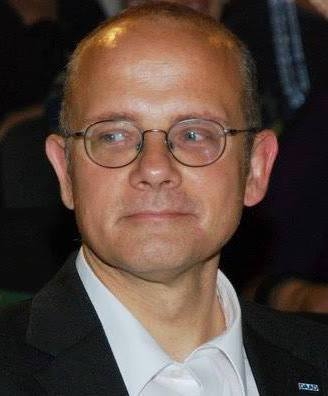How unwary journalists help dilettante analysts to spoil reforms in the former USSR
Why has the economic and political modernization in the former Soviet republics more often than not gone wrong? Political scientists, sociologists, and economists, from around the world, have given a variety of more or less complicated answers to this question. Often these explanation combine in-depth observations and advanced theories from a variety of fields including political economy, cultural anthropology, comparative politics, or contemporary history.
The invasion of the smatterers
However, there may sometimes be a more simple explanation to the tenacity of certain socio-political defects in the post-Soviet world: The newly independent states may have failed in this or that reform, because of the bare dilettantism, yet sometimes significant influence of hundreds of post-communist pseudo-scholarly advisors and unequipped commentators. Some of those, in the post-Soviet world, who claim to be social scientists, legal specialists and political experts are not really so. A large number of them are nevertheless enjoying high prominence in East European, Caucasian and Central Asian public affairs.
Post-Soviet politicians, bureaucrats and activists trying to modernize their countries might have failed simply because they have too often been given amateurish advice, and listened to dabblers' opinions. Not only did anti-rational myths, international and -ethnic conflicts, or deep structural defects, extensively analyzed in post-Soviet studies, impede successful transformation in the post-communist countries. Bad political expertise and extensive public smattering too have seemingly played their role in the failures to reform the former Soviet republics economically, socially and politically. How could that have happened? Arguably, dilettantism has had such success in the former USSR because of, above all, superficial journalism about scholarly opinion on, and experts assessments of, this or that socio-political problem and its solution.
Specialists vs. amateurs
Proper social scientists, especially those studying the post-communist transition states, at Western or Asian higher education or research institutions often know in person their colleagues, in the transition countries. Typically, they will have read these post-Soviet scholars' international publications, and/or may have met them at relevant academic conventions. Sometimes, they know their post-Soviet colleagues from their post-graduate or post-doctoral studies, for instance, in Germany , France or Japan , or from their visiting fellowships at some research university or relevant think-tank in Boston , London or Singapore . In certain cases, they have developed long-term collegial relationships or even personal friendships, and are cooperating in joint research projects, with their counterparts in Moscow , Kyiv or Tbilisi .
However, when these Western scholars visit the post-Soviet countries, and switch on TV and read the press, they will only sometimes encounter their acquaintances among those providing social scientific expertise in mass media. If they watch an analytical televised or other public discussion in a post-Soviet country, the foreign visitors may, instead, encounter contributors whom they may have never come across in a reputed specialized journal, or at a major scientific conference. These internationally unknown "experts" are often "presidents," "chairmen" (only few women among them), or "general directors" of some center, foundation or institute, with a more or less impressive name. Frequently, they have themselves founded these centers. Some are TV stars of sorts, in their home countries.
To be sure, certain such local matadors, say Russia 's well-known "political technologist" Gleb Pavlovsky, may still be invited to serious international expert meetings. However, this may have to do less with the cognitive value of their political interpretations. Instead, it might be due to the presumed insider knowledge of the pseudo-experts who may have better access to political elites than their properly academic colleagues. Bluntly, these publicists may be asked to speak at an expert meeting in their capacity as intriguing study objects, or as a sort of primary source, by themselves, rather than because somebody regarded them as interesting analysts.
The journalistic presentation of expert assessments
It is easy to attack the pseudo-experts and expose them as dilettantes, within the relevant specialist circles. The main problem, however, is not with the dabblers themselves, but with the extensive exposure in post-Soviet mass media, above all on television, that some of them receive. Their publicity leads to the spread of superficial diagnoses. It prevents substantive analysis and a productive search for correction of salient structural defects in the post-Soviet societies. Moreover, the pseudo-experts heavy presence in mass media crowds out serious analysts - whether local or international. The dilettantes' media presence seems to also be a door-opener to decision-makers, and occasionally leads to the adoption of bogus responses to urgent political, economic and social challenges.
At hand here is primarily a flaw in journalistic reporting of expert opinion, and only secondarily pathologies in the epistemic communities of the post-Soviet world themselves. Were the pseudo-experts less present in mass media, there would be little with what they could impress the political elites, civil society or bureaucracies of their countries. Their presence on TV and in the national press by itself suggests to the public that they are competent -- which is more often than not a wrong conclusion.
(Note: You can view every article as one long page if you sign up as an Advocate Member, or higher).





